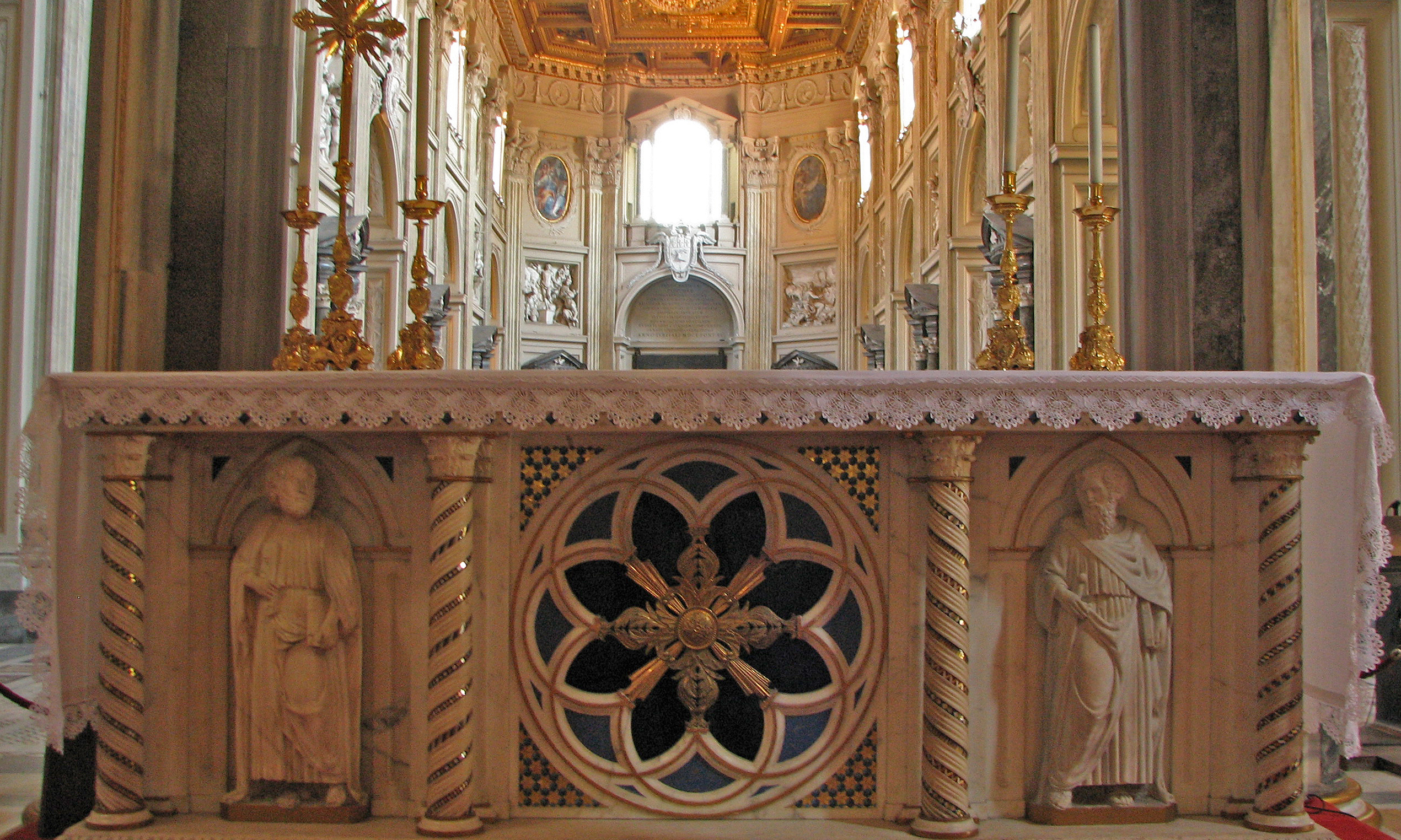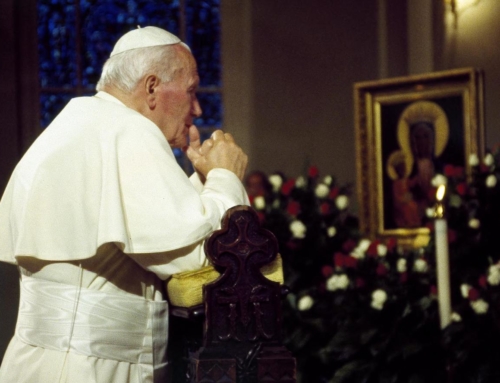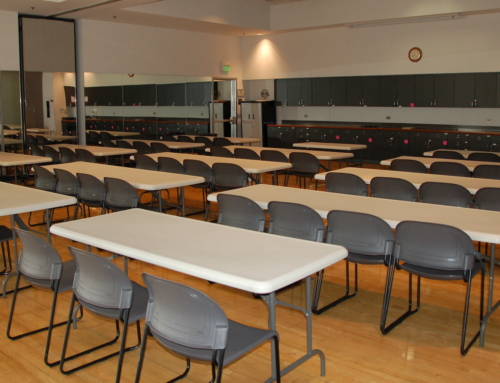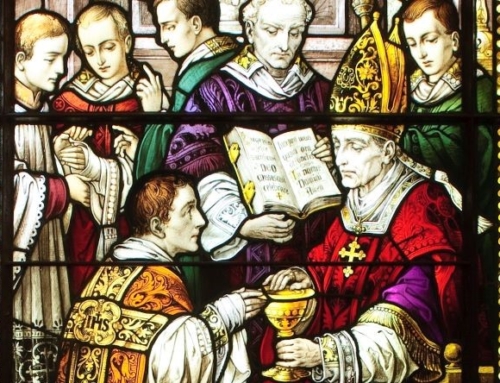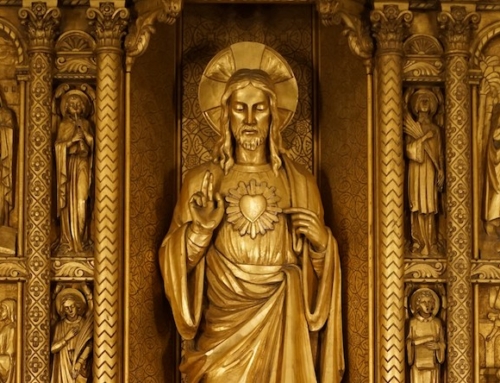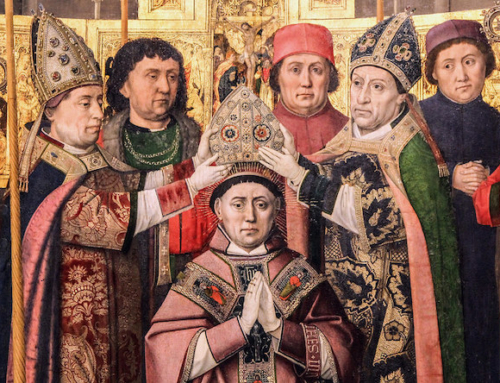For I received from the Lord what I also handed on to you… (1 Cor 11:23)
If we were to poll Catholics on “reasons to thank God,” someone could respond, “You know, I’m just grateful for the institutional Church under her human aspect.” That would raise a few eyebrows today, and not without reason. The Church, according to Lumen Gentium, is “one complex reality” made up of “a divine and a human element” (LG 8). Why, especially in light of the scandals from some of her members, would we specifically thank God for the human element of the Catholic Church? Aren’t the humans more or less the problem here?
To be sure, the Church would be nothing without her “divine element,” that is, without her identity as the one Bride of Christ, eagerly awaiting our Lord’s return (Rev 21:9; 22:17). Nevertheless, her temporal institution on earth serves a particular purpose. Jesus entrusted the Apostles and their successors with the fullness of revelation, and gave them his Holy Spirit, “that what he had revealed for the salvation of all nations would abide perpetually in its full integrity and be handed on to all generations” (Dei Verbum 7). The Church, in her preaching of the Gospel, and especially through the sacraments, extends the Incarnation throughout history and the world. “Behold, I am with you always,” our Lord promises us, “until the end of the age” (Mt 28:20).
If we want to appreciate the gift of the Church, we cannot abstract the Mystical Body of Christ from her concrete existence in her members. “You are Christ’s body,” St. Paul says, “and individually parts of it” (1 Cor 12:27). Communicating the gift of grace—that is, our sharing in the very life of God, the fulfillment of all human desire, this mission of preaching the Gospel—was entrusted in a very real way to very human people. From them, God’s revelation of himself has been “handed down” through the ages in the Church, and this action continues as the tradition of the Church.
Today the Church remembers St. Linus … although she unfortunately doesn’t remember very much about him. Saint Irenaeus, writing in the late second century, names him as the immediate successor to Sts. Peter and Paul’s mission in Rome, and further identifies him as the Linus mentioned in Scripture at the end of Second Timothy (Against Heresies 3.3.3; 2 Tim 4:21). The liturgical tradition claims that he, as the second Pope, died a martyr, and some say he was buried at the Vatican near his predecessor (see here for history and sources). Although Pope St. Linus is almost anonymous as a saint, we can say that, after the severe persecution in Rome at the hands of the emperor Nero, Peter’s successor would have been left with the difficult task of gathering the scattered flock quietly. Thus the Church could continue to hand on the Gospel in the heart of the Empire.
For two thousand years, the holy men and women of the Church, “so great a cloud of witnesses” (Heb 12:1), have been charged with “handing down” the Faith so that we may believe in Jesus Christ. As our Lord’s human nature, his passion, death, and burial, cannot pollute his divinity, so too the humanity of the Church cannot obscure her divine origin. Living in the Church, we are ennobled as true cooperators in Christ’s mission, while our own fragility reminds us that this mission never begins with us: “We hold this treasure in earthen vessels, that the surpassing power may be of God and not us” (2 Cor 4:27).
Sending the Holy Spirit, Jesus promised not to abandon his Bride, and he fulfills this promise in time until the end of the world. The tradition of the Church is simply the incredible mystery that he used and continues to use fragile human beings to share his life with us, from the first century to the present.
For I received from the Lord what I also handed on to you, that the Lord Jesus, on the night he was handed over, took bread, and, after he had given thanks, broke it and said, “This is my body that is for you. Do this in memory of me.” (1 Cor 11:23-24)
We pray for the Church and her continued purification. Saint Linus, pray for us!
✠
Photo by Fr. Lawrence Lew, O.P. (used with permission)

